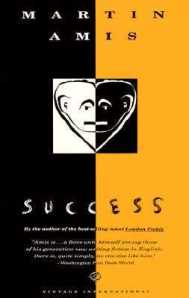When I go to a new place, I first listen to the dogs, and only after them do I listen to other human beings. The dogs tend to tell one more.
In the Pacific Northwest, dogs are treated like royalty. I gathered one example just today as I sat on a park bench and a passing woman let her dog stop to converse with (sniff) me as though it was, for the owner, a mildly uncomfortable yet totally necessary interruption. One doesn’t merely pull hard on the necks of princes and princesses to move them along.
Another example: I was walking a trail near my home one day and a curly haired, panting little gentleman came around the corner, saw me, and enthusiastically started my direction, only to graze my leg with his side and keep going—an intimidation tactic, surely. ‘Swathford! No!’ his female owner called. Over-apologetic, she said to me, ‘I’m so sorry.’
It was hardly anything to be sorry about. But what in the world kind of name is Swathford for a dog?
As I passed the same couple with the same Swathford, Swathford stopped just around the corner and looked at me as if to say, ‘Oh you … You already got me in trouble once.’ Nevertheless, he passed me and grazed my leg with his side just the same—surely he was trying to wear me down, I’m convinced—inciting his owners to reprimand his strangely noble sounding name once again. If they’re not treated like royalty, they’re named like royalty.
There are certain areas of certain cities where having a certain dog is similar to having a certain kind of car. Just as certain kinds of cars are meant to convey that one is willing to outrun the police and probably has before, the ownership of certain kinds of dogs are meant to convey that one is not to be trifled with.
There are two commonplaces one often hears about pit-bulls: 1) they always go crazy and attack children long after their domestic tenure and 2) once they latch on, they never let go. An owner of two pit-bulls that I know once told me that his presciouses fought often. The only thing that makes them let go is rubbing alcohol to the bared gums and eyes. For that brief, burning instant, they settle their differences and worry about themselves. Nothing more to see here, folks.
In Ireland, I noticed, the mere shadow of a person causes the dogs to flee in panic. Once, as I was walking with a friend of mine, I saw a shaggy-haired thing sniffing around the street. Zealous and goofy, I called out to the dog, speaking absolute gibberish in an enthusiastic voice. The dog looked up at me very quickly, paused for a moment to study me, and ran the other direction as fast as he could. I couldn’t help but think that an American dog would have come to me.
I started to worry: Do the people here kick the dogs?! Why do they cower? Why do they lower their heads? How come there were so many strays walking around? These are questions I had not the time or the energy to study.
Yes, dogs say more with their actions than they do with their nonexistent words. It is my suspicion that, even if dogs could talk, they wouldn’t. They wouldn’t need to.


